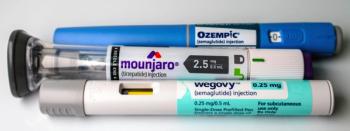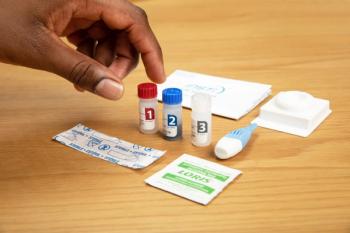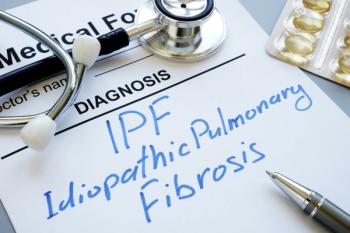
Experts discuss breakthroughs in respiratory virus vaccines.

Kennedy Ferruggia is an associate editor at Pharmacy Times®. She graduated from The College of New Jersey in 2023 in journalism and marketing. Prior to this position, she worked as a pharmacy associate for community pharmacies.

Experts discuss breakthroughs in respiratory virus vaccines.

Research reveals varying impacts of GLP-1 receptor agonists on asthma risk, urging careful medication selection for patients with diabetes and respiratory issues.

A digital therapeutic app enhances access to behavioral cough suppression therapy.

James Chalmers, MBChB, PhD, discusses the ASPEN trial's findings on brensocatib's impact on lung structure and function in bronchiectasis patients.

Megan Dulohery Scrodin, MD, discusses COPD management challenges and the need for accessible care and cost reduction.

Sara Assaf, MD, shares insights on selecting biologic therapies for severe asthma, including biomarkers, patient factors, and managing nonresponders effectively.

The FDA's approval of GLP-1 for obstructive sleep apnea enhances treatment options, emphasizing pharmacists' vital role in patient care and management.

Pharmacists are uniquely positioned to help prevent nutritional deficiencies, manage adverse effects, and maintain long-term health through tailored guidance.

The FDA approves a groundbreaking 1-minute HIV self-test, enhancing accessibility and empowering individuals to manage their health discreetly.

Research reveals the impact of SSRIs on pregnancy, highlighting risks and benefits for maternal mental health and fetal development.

GLP-1 receptor agonists show potential as innovative treatments for alcohol and substance use disorders, addressing critical public health needs.

Emily Griffin is leveraging her social media platform to redefine pharmacy practice.

Primary care clinics enhance diabetes management by implementing continuous glucose monitors, improving access to essential care for patients nationwide.

Pharmacists emphasize the importance of RSV awareness, testing, and vaccination for older adults and high-risk infants to enhance community health.

Inhaled insulin Afrezza offers a rapid-acting alternative for children with type 1 diabetes, enhancing blood glucose control and patient satisfaction.

The FDA approves Eydenzelt, a biosimilar for retinal diseases, enhancing treatment options for diabetic macular edema and age-related macular degeneration.

Research reveals that poor glycemic control in adolescents with type 1 diabetes significantly increases the risk of developing neuropathy in adulthood.

GLP-1 receptor agonists significantly influence FDG-PET-CT scan interpretations, potentially leading to misdiagnosis in cancer detection.

Researchers explore continuous glucose monitors (CGMs) for early detection of insulin issues, aiming to prevent diabetes progression and improve screening methods.

Cagrilintide shows significant weight loss in adults with obesity, marking a breakthrough in obesity treatment with promising phase 3 trial results.

The FDA approves nerandomilast, the first new treatment for idiopathic pulmonary fibrosis in over a decade, offering renewed hope for patients.

Derek Webb, PharmD, discusses RSV in older adults, highlighting symptoms, risk factors, and barriers to vaccination.

Derek Webb, PharmD, discusses RSV in older adults, highlighting symptoms, risk factors, and barriers to vaccination.

Recent research reveals that continuous glucose monitors (CGMs) may inaccurately overestimate blood sugar levels, potentially leading to unnecessary dietary changes for healthy individuals.

Matthew D. Clark, PharmD, highlights a pharmacist-led program that improved opioid safety in cancer care despite regulatory exemptions.

MD Anderson's opioid stewardship program enhances patient safety and care by monitoring opioid use, addressing discrepancies, and fostering multidisciplinary collaboration in cancer treatment.

Metabolic bariatric surgery offers greater weight loss and lower costs than GLP-1 treatments for obesity, prompting a reevaluation of treatment strategies.

Gene therapy offers transformative potential in treating diseases like sickle cell and leukemia, highlighting pharmacists' crucial roles.

Gene therapy revolutionizes treatment in oncology, highlighting pharmacists' vital roles in patient care and long-term monitoring.

A real-world study at MSK reveals promising efficacy and safety of second-generation BTK inhibitors in mantle cell lymphoma treatment, influencing future guidelines.